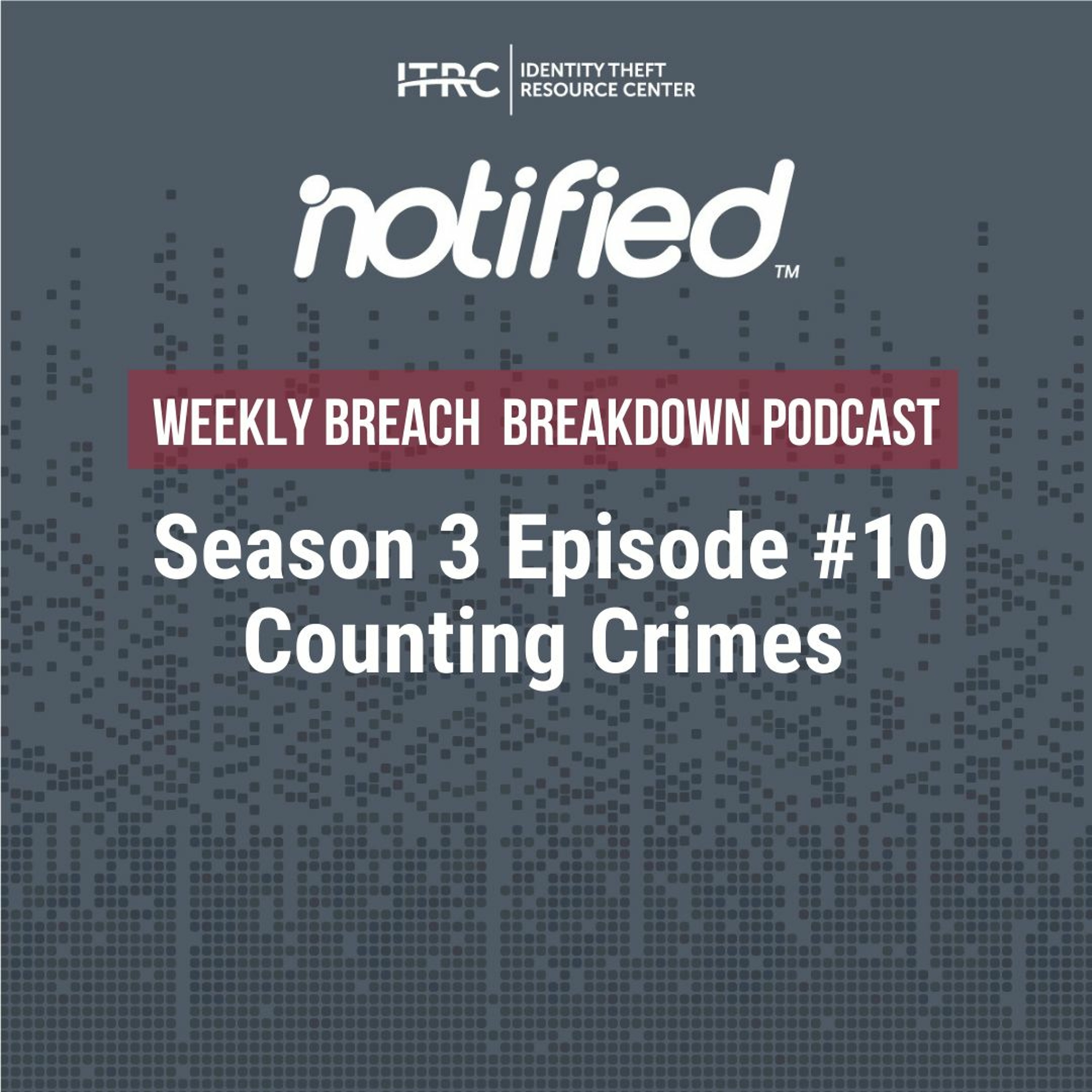Each week we take a look at the most recent events and trends related to data security and privacy. For the second time in a month, the US Congress has sent a bill to President Biden that will create new tools to help fight against the rising tide of identity crimes.
Show Notes
Follow on LinkedIn: www.linkedin.com/company/idtheftcenter/
Follow on Twitter: twitter.com/IDTheftCenter
Show Transcript
Counting Crimes
Welcome to the Identity Theft Resource Center’s (ITRC) Weekly Breach Breakdown for April 8, 2022. Each week, we look at the most recent events and trends related to data security and privacy. For the second time in a month, the U.S. Congress sent cybercrime legislation to President Biden that will create new tools to help fight against the rising tide of identity crimes. How big is that wave? How many people are impacted each year by identity theft and fraud? We can make some educated guesses. However, unfortunately, we don’t have a lot of good data on the topic – yet. That’s why we’re calling this episode “Counting Crimes.”
What We Know About Identity Crimes
The Federal Trade Commission’s (FTC) 2021 data shows 25 percent of fraud reported to the Commission last year was identity-related. That translates into 1.4 million Americans and more than $5.2 billion in reported fraud losses.
The Federal Bureau of Investigation’s (FBI) IC3 report for 2021 shows a similarly large number of suspected identity-related crimes: 847,376 reports representing nearly $7 billion in potential losses to individuals and businesses.
Identity Fraud Exceeds Violent Crimes
These statistics indicate that identity fraud exceeds all violent crimes – combined – and annually is second only to Larceny in terms of the overall number of offenses committed each year. That’s according to the FBI. Yet, these identity crime numbers are based solely on self-reported incidents – not actual crime reports from law enforcement agencies like most other crimes. Why is that?
The short answer is there is no requirement to do so. In fact, it is still a struggle in some areas to get law enforcement agencies to take an identity crime report. It is even harder to see that crime investigated and prosecuted.
There is also no formal local, state or federal infrastructure designed to support victims of identity-related crimes. That is a different discussion for another day. However, it is expected to be the topic of a presidential executive order later this month. We digress.
New Cybercrime Legislation
Now comes word that the U.S. House and Senate have passed cybercrime legislation requiring the Department of Justice (DoJ) to collect and measure cybercrimes comprehensively for the first time. The cybercrime legislation arrives at the White House for action on the heels of the President signing another bill that requires critical infrastructure owners and operators to report cyberattacks and ransomware payments to government regulators.
In a floor speech urging passage of the reporting requirements, Rep. Abigail Spanberger of Virginia noted that cybercrimes were now the most common criminal offense in the country.
“Unfortunately, a vast majority of these crimes are not properly reported or tracked by law enforcement. And far too often, they are not measured or even documented. And to make matters worse, our government lacks the preparedness required to fully address the next generation of cybercrime and cyberattacks.”
Management guru Peter Drucker famously wrote, "If you can’t measure it, you can’t improve it.” Finally, having reliable statistics to measure cybercrimes in general and identity crimes, in particular, will be immensely helpful in developing new ways to prevent and mitigate these crimes. It will also assist victims when it happens. Once President Biden signs the bill, the DoJ has 18 months to begin collecting information about cyber and cyber-enabled crimes.
Contact the ITRC
If you want to learn more about protecting your personal or business information, have questions about the cybercrime legislation, or if you think you have been the victim of an identity crime or compromise, visit our new website at our old web address www.idtheftcenter.org. You can speak with an expert advisor on the phone (888.400.5530), chat live on the web, or exchange emails during our normal business hours (Monday-Friday, 6 a.m.-5 p.m. PST).
Be sure to listen to the latest episode of our sister podcast, The Fraudian Slip. We will be back next week with another episode of the Weekly Breach Breakdown.
Listen On
Also In Season 3
-
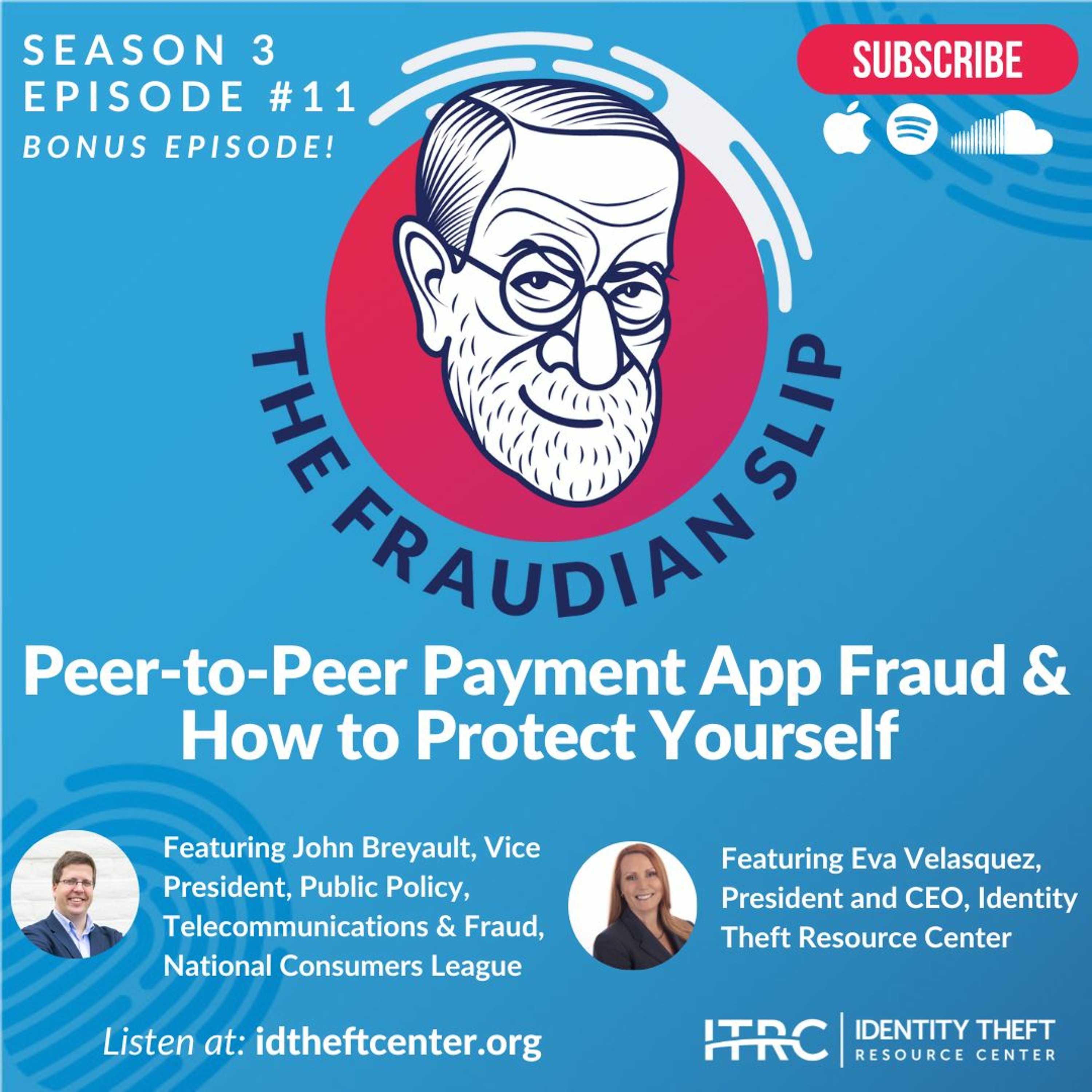
The Fraudian Slip Podcast ITRC - P2P Fraud
Welcome to the Fraudian Slip…the Identity Theft Resource Center’s podcast where -
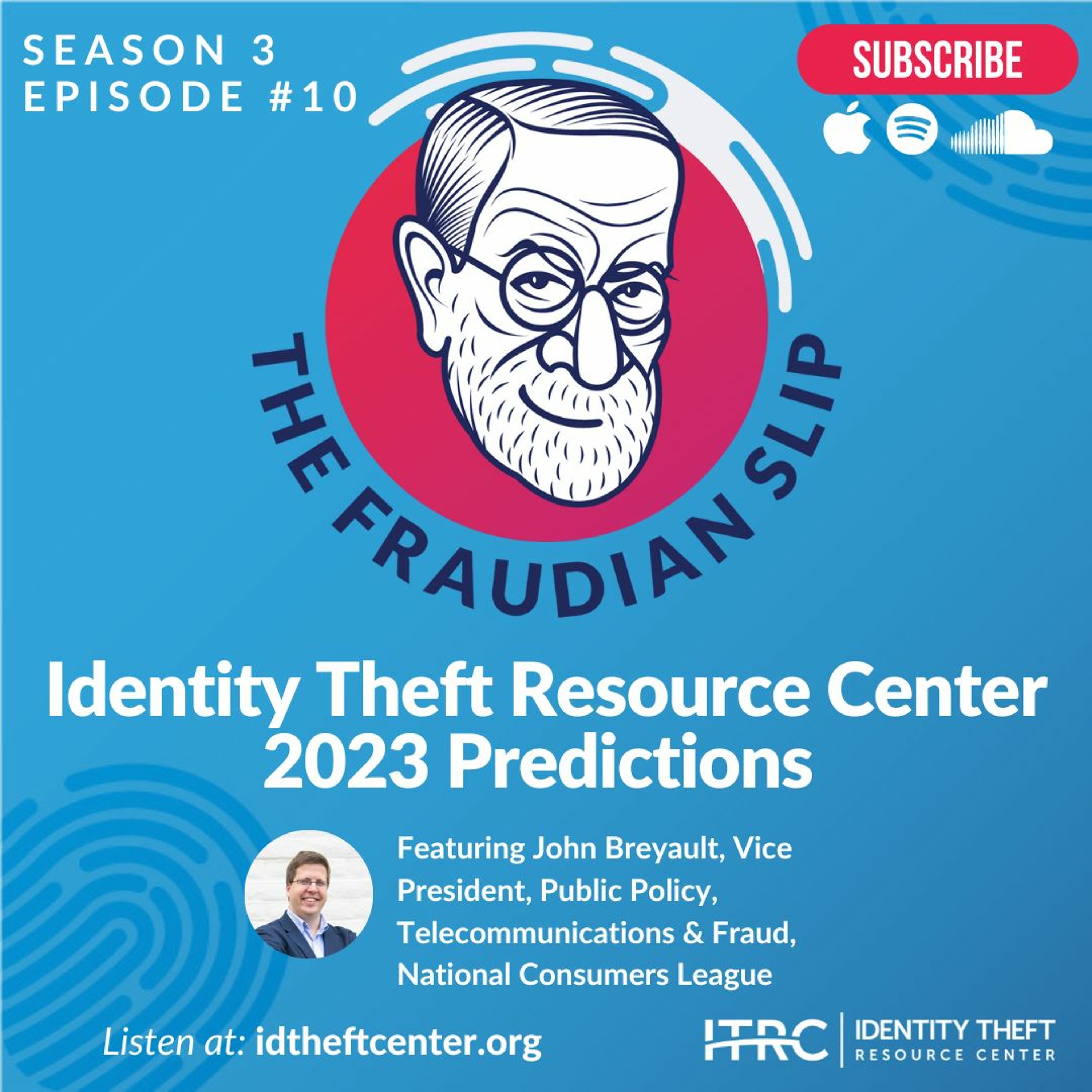
The Fraudian Slip Podcast ITRC - 2023 Predictions
Welcome to the Fraudian Slip…the Identity Theft Resource Center’s podcast where -
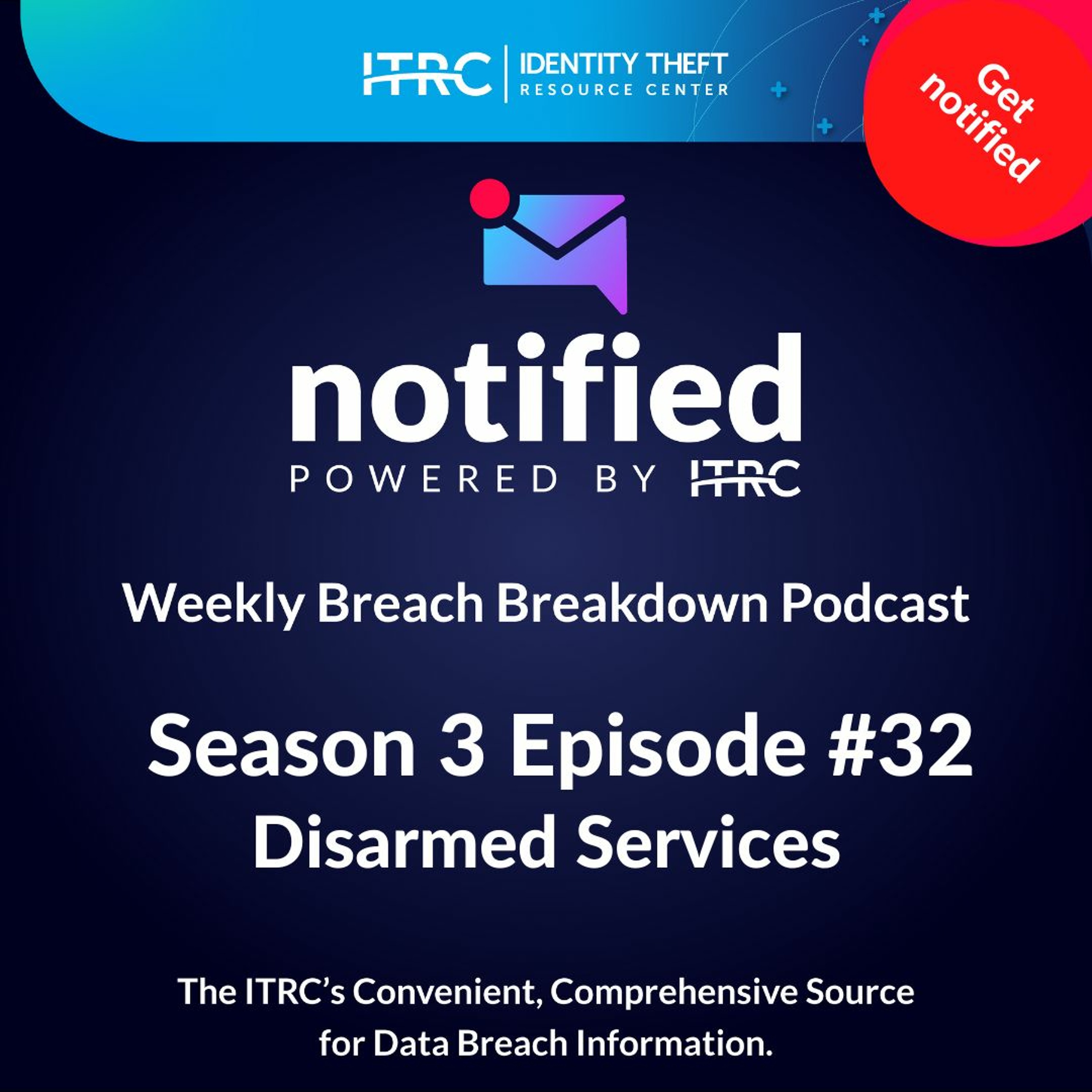
The Weekly Breach Breakdown Podcast by ITRC - Disarmed Services - S3E32
Welcome to the Identity Theft Resource Center’s Weekly Breach Breakdown for Nove -
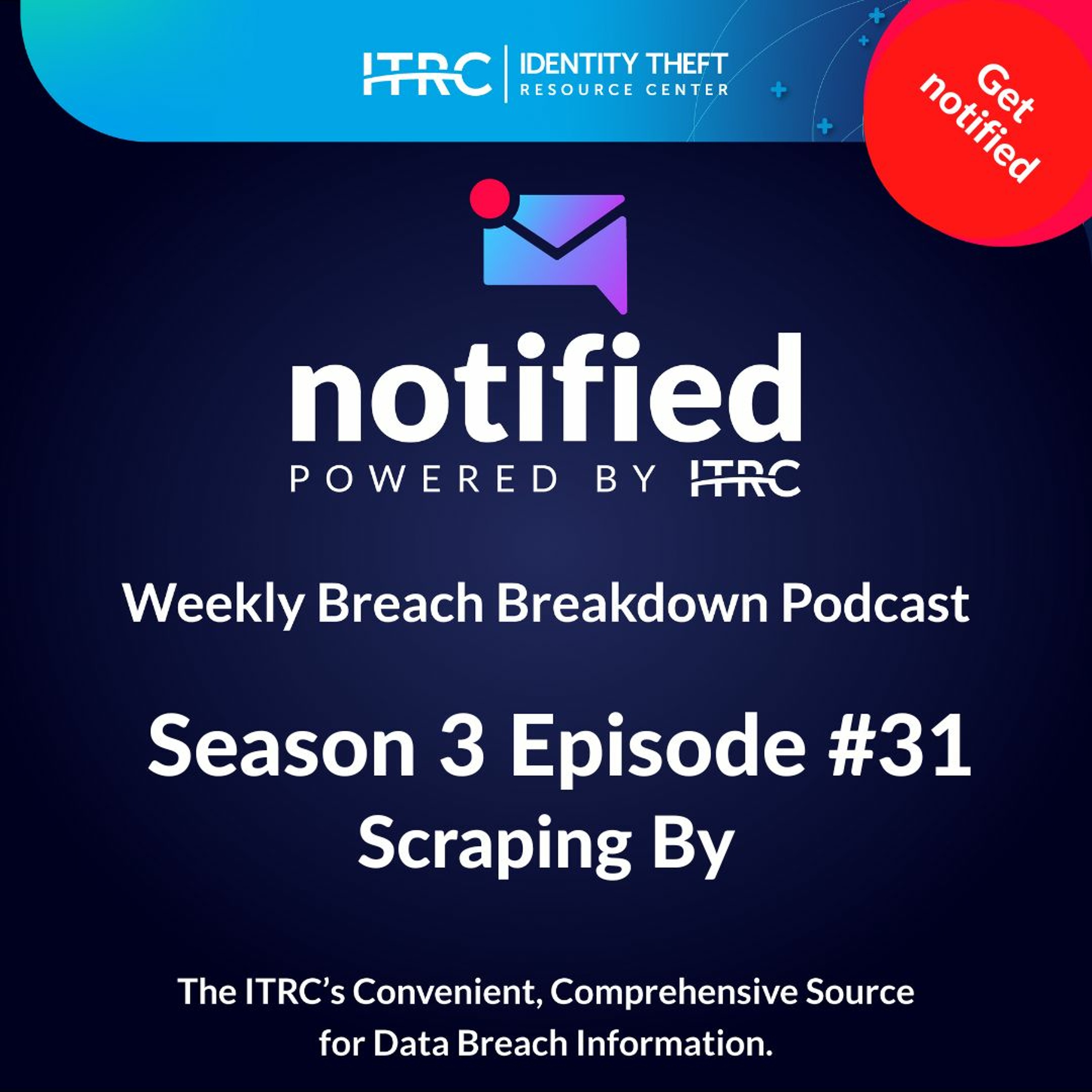
The Weekly Breach Breakdown Podcast by ITRC - Scraping By - S3E31
Welcome to the Identity Theft Resource Center’s Weekly Breach Breakdown for Nove
